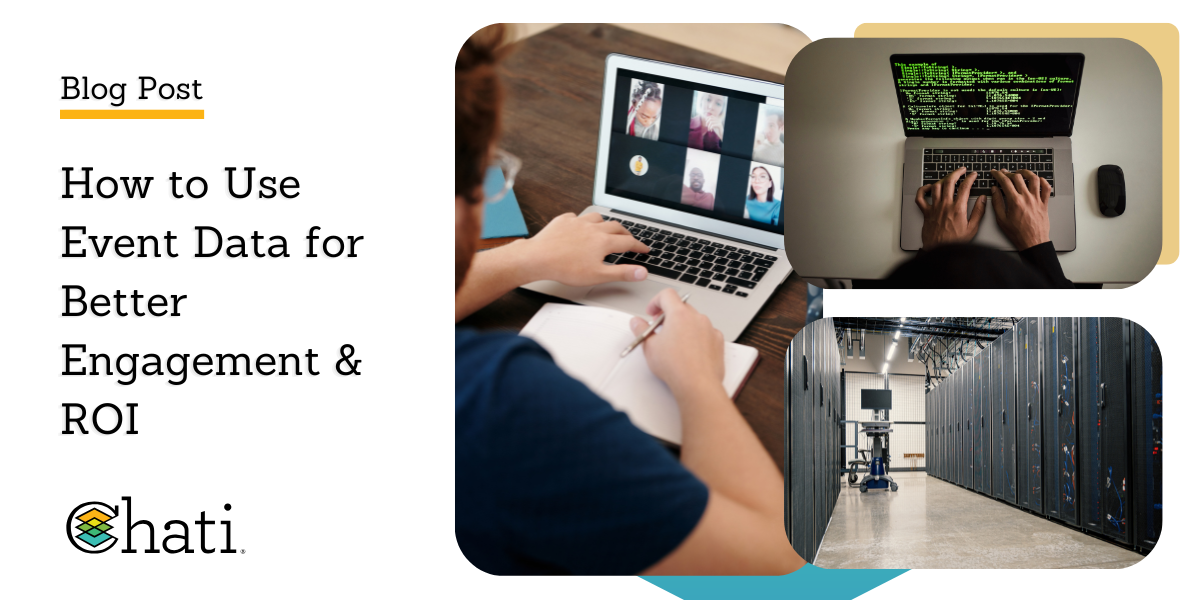Virtual events are built on attendees engaging and connecting while striving to achieve their personal and professional goals. They are also built on the significance of data in enhancing event engagement and maximizing return on investment (ROI) for event organizers and attendees.
The role of event data in providing actionable insights that help event organizers optimize attendee experiences and increase return on investment is essential for hosting a successful virtual event.
Here, we will discuss how data-driven strategies are becoming integral to event success, both for virtual and in-person events, including understanding their importance, driving better engagement, optimizing event ROI, and actionable strategies. Through this, you will know how to host a successful virtual event while maximizing ROI for everyone.
Understanding Event Data and Its Importance

The first step in understanding event data is to define it, including metrics such as attendee behavior, session engagement, registration trends, and post-event feedback. Another aspect of understanding event data is recognizing the various types of event data, including the distinction between qualitative and quantitative data, such as survey responses versus behavior tracking. Ultimately, understanding the importance of data involves recognizing why tracking event data is essential for enhancing engagement, meeting audience needs, and maximizing ROI.
Using Data to Drive Better Event Engagement

Tracking attendee engagement involves key metrics, including session views, participation in live Q&A sessions, interactions in networking spaces, and poll responses. Personalizing the experience involves segmenting data based on attendee demographics and behaviors to offer personalized content and recommendations.
Real-time data utilization includes the benefit of using real-time data to adjust event experiences on the fly, such as changing session formats or promoting under-attended sessions. Gamification and interactivity involve leveraging data on attendee preferences to create more engaging experiences, such as offering rewards or interactive features based on engagement patterns.
Optimizing Event ROI with Data

Measuring ROI beyond attendance involves assessing ROI by analyzing key metrics, such as lead generation, conversion rates, and post-event sales. Tracking sponsor and exhibitor performance involves using event data to demonstrate the value provided to sponsors and exhibitors, ensuring they see a positive return on their investment.
Cost efficiency includes how data can help streamline event processes and reduce costs, such as identifying areas where resources can be optimized. Ultimately, long-term ROI entails evaluating how data collected from multiple events over time can inform and refine future event strategies, ultimately enhancing overall ROI.
Actionable Strategies for Using Event Data to Improve Engagement & ROI

The first step in establishing actionable strategies is setting clear objectives, which involves defining specific goals for your events (e.g., lead generation, attendee engagement, brand awareness) and tracking data relevant to these objectives. Additionally, monitoring engagement in real-time involves using live analytics to track attendee behavior and adjust strategies during the event, such as offering additional networking opportunities or adjusting session schedules.
Post-event follow-up involves leveraging post-event surveys and content consumption data to follow up with leads, converting interest into sales, and gathering valuable feedback. Ultimately, optimizing marketing strategies involves utilizing data to assess the effectiveness of pre-event marketing campaigns, including registration rates and attendee demographics, in order to refine future promotions.
Summary
Here, we discussed how data-driven strategies are becoming integral to event success, both for virtual and in-person events, including understanding their importance, driving better engagement, optimizing event ROI, and actionable strategies. You now have the tools and resources to host and organize a successful virtual event while maximizing engagement and ROI.

We encourage event organizers to incorporate data-driven strategies into their planning and execution to achieve improved outcomes. Additionally, we invite you to contact Chati to discuss how we can further evolve event data and its impact on future event success.
